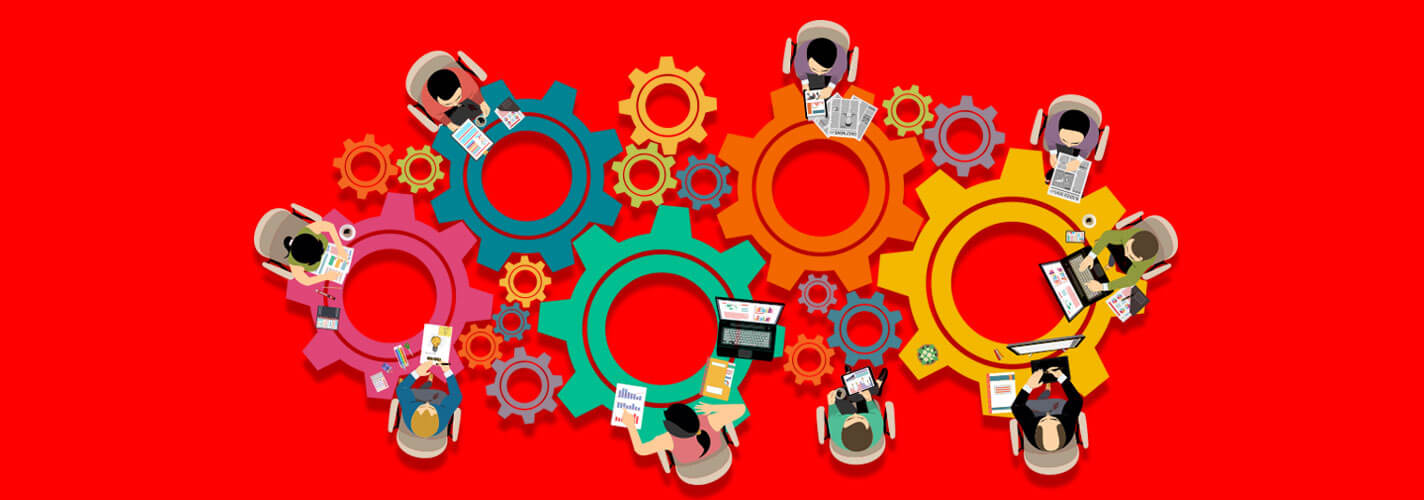Expert in Sales Follow-up: Selling the Price
As a sales professional you are not only responsible for selling a product...
Do you regularly encounter structural problems in completing all your work, or do you have employees who complain about the workload? Work stress is not only very annoying, it is also detrimental to your health and the performance of your company.

High workload occurs when there is not a good balance between the time you have available and the work you have to do. Managers often make plans based on available hours, minus a margin for consultation and communication, etc. The time that remains is then scheduled with activities and tasks. In itself a good and logical way of planning, but a number of things often go wrong.
Firstly, it often happens that too little time is scheduled for the various tasks. The employee is not always heard when making plans, so that he or she cannot assess whether the estimate is correct. However, what goes wrong much more often and is a latent danger in many organizations is the 'perception' of work pressure. On paper and in practice, you may have more than enough hours to complete your work. Yet it is often the case that employees experience high work pressure, while there is none purely based on planning. Particularly if employees have many different tasks, the perception of work pressure can increase quickly. A very long to-do list full of tasks is daunting and causes stress. Other common causes of work pressure include not being able to say 'no'.
If the high workload continues for a longer period of time, you may suffer from work stress. And then things go wrong! Ultimately, this will be at the expense of the enjoyment you have in your work and it will most likely also be at the expense of the atmosphere in the workplace. This work stress makes people feel like they have to rush to get everything done. Logically, this means that we are less attentive, make more mistakes and become irritated much more quickly. In addition to all these consequences, it can also be very detrimental to your health. You can suffer from physical and mental complaints. In short, workload is a factor that you should keep a close eye on in your department. Being busy is no problem, but work stress is always lurking. If the workload is too high, absenteeism will skyrocket. If that happens, you're actually already too late. Employees have less energy and are less motivated, which increases the risk of accidents. This will ultimately lead to poorer results for your company.
Both you as an employer and the employee themselves have a responsibility when it comes to managing workload.
As an employee, it is very important to be able to cope with your workload. How are you doing this? The most important thing is to be realistic with yourself. Don't take too much on your plate and don't hesitate to say no. A little stress helps your productivity, but as soon as you start to feel tired or reluctant to start the day, the alarm bells should start ringing. Also take sufficient breaks during your working day and stop on time. The longer you work, the more tiring it becomes and the greater the chance of burnout. One last tip: take at the end of the working day take a moment to list everything you have done and what you still need to do. So end the day with this for yourself, so that you know what you can work on the next day/week.
As an employer, you also have an important role in monitoring the workload in your organization. You determine the schedules and therefore have a major influence. It is obvious to simply give an employee with work stress fewer tasks. Yet, as crazy as it sounds, that is not the solution! Research has shown that people with a perception of work stress are not immediately helped by fewer tasks. It is important to give the employees in question new energy! How? For example, by hiring colleagues to support the stressed employee. Do not take tasks away from the employee, as this will lead to negative motivation. He or she may then get the idea that they are 'unsuitable'. Small things also help enormously, such as having a say in a decision, having a say in the planning, or a compliment. Flexible working hours can also help, especially if a lot has happened in your employee's private environment.